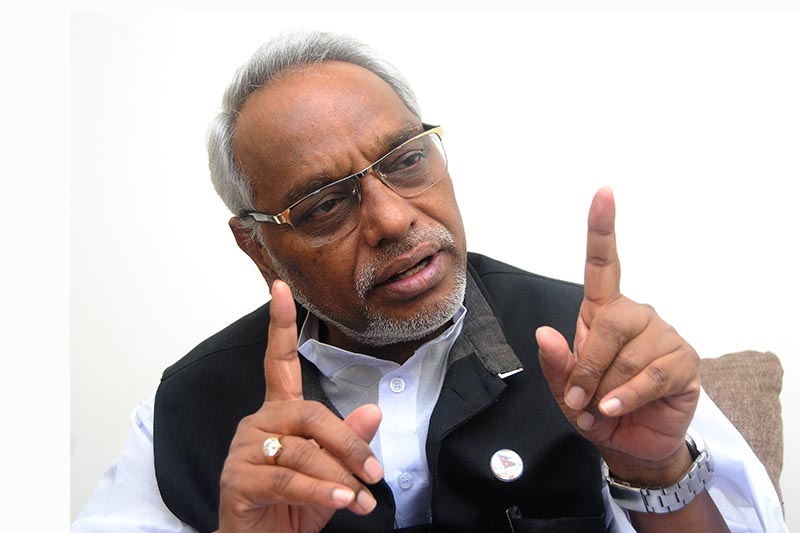RJP-N, SP-N intensify merger talks
Kathmandu July 6
Rastriya Janata Party-Nepal and Samajwadi Party-Nepal have intensified unity talks in recent weeks and have agreed in principle on unifying, but analysts say both the parties may take months to agree on unity or partnership in an alliance.
RJP-N leader Rajendra Mahato said his party was preparing for unity or partnership in an alliance with SP-N so that a momentum for nationwide movement could be built to pressure the government to address issues of Madhesis, Janajatis and other marginalised communities and groups.
“We have held talks with SP-N leaders and they have agreed in principle on unity with us but we are yet to discuss issues formally,” Mahato said.
An RJP-N leader said he was not very hopeful about unity with the SP-N because his party’s attempt in the past to reach a merger deal with the SP-N did not yield any positive result.
“But since the SP-N also talks of forming an alternative to champion the cause of inclusive democracy and empowerment of marginalised groups, we are keeping our fingers crossed for unity with SP-N or partnership in an alliance with it,” the RJP-N leader said.
The leader said there was widespread dissatisfaction within the SP-N for not raising issues of constitution amendment strongly after the party joined the Nepal Communist Party (NCP)-led government.
The leader said that success of unity talks would depend on the SP-N’s readiness to quit the government and accord appropriate positions to RJP-N leaders on the basis of their equal strength in the Parliament.
Co-chair of SP-N Rajendra Shrestha said dialogues were being held more frequently and cordially between the two parties, but they were yet to iron out differences on organisational issues. “We have agreed for unity and we have been talking for the past two years, but unfortunately we could not settle all the issues with RJP-N or else unity would have been formalised on May 6 when the Federal Socialist Forum-Nepal and Naya Shakti Party-Nepal decided to merge.
The RJP-N has recently held discussion with seven fringe Janajati parties, including Janamukti Party, Federal Democratic National Forum led by Kumar Lingden and Nepal Democratic Party led by Bhanu Ram Tharu.
Political analyst Jay Nishant said people wanted the two parties to unify as both had championed the cause of marginalised communities, but the top leaders wanted to secure their position and numerical strength in the central committee of the party. It was because of such calculations that the two parties were not able to unify.
“Leaders of the RJP-N and SP-N want to know how many loyalists they will have in the central committee of the unified party and which leaders will be placed in which position in the party’s seniority list,” he said and added that the two parties, however, were feeling the heat for merger due to vote threshold. “In the last general election, these two parties barely secured the vote threshold to become national parties and if they contest the next general elections separately, they might not retain the same status. This is one reason that could compel them to merge their parties,” he said, “But even if they decide to merge, that will take time as SP-N does not seem to be in the mood to quit the government any time soon,” he added. Nishant said chances were high that the two parties could merge or agree to be part of an alliance only in the year the next general elections would be held.






